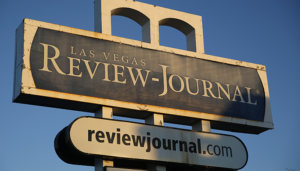I worked for four newspaper “groups” during my nearly 37 years in daily journalism. They were, in order: Newhouse Publications, Scripps League, the Hearst Corp., and Morris Communications.
They all said publicly that they didn’t “dictate” from corporate HQ’s how their individual newspapers formulated their editorial policies.
It was a bit of a challenge to explain all of that to readers and officials, but I managed.
Well, today the Morris Communications company that runs the paper where my career ended has put to rest the quaint notion of editorial “autonomy.” It has declared that all of its editorial pages today have endorsed Donald J. Trump for election to the presidency of the United States.
I haven’t yet read the Amarillo Globe-News’s “endorsement,” given that it hasn’t been posted on its online edition; I just looked this morning and couldn’t find it. Here, though, is the Florida Times-Union’s statement about the campaign. I’m guessing it’s being repeated here in West Texas:
http://jacksonville.com/opinion/2016-11-04/editorial-trump-change-agent-america-needs
The CEO of the Morris company, William Morris IV, has written what he’s called an “explanation” of the endorsement. It really is nothing of the kind. It’s actually a vapid restatement of platitudes and clichés. I don’t know Morris well, but I’ve had enough exposure to him to expect nothing more from this individual. Take a look:
http://jacksonville.com/news/2016-11-04/will-morris-explains-times-union-s-trump-endorsement
My favorite cliché is this one: “While this endorsement reflects our opinion, we want readers to know that this does not influence our news coverage. Newsrooms run independently from our editorial pages.”
Well, no s***!
I won’t delve too deeply into this statement. It’s too shallow, frankly, for any serious examination.
***
But what fascinates me about it is its timing. Today is Sunday. The election occurs on Tuesday. That gives readers of Morris papers today and Monday to comment, to respond.
Hmmm …
One of my former editors — a mentor and a friend to this day — had a name for this kind of timing. He called it a “last-minute dump.” He disallowed letters to the editor that came in too close to the end of a political campaign. His belief was that readers deserved the opportunity to respond — either positively or negatively — to what was published.
That was a policy I sought to follow during my decades practicing that craft.
The advent of early voting usually meant that newspapers would get their editorial endorsements “on the record” at the start of the early voting period. In Texas, that window opened on Oct. 24 and it closed this past Friday. The idea would be to let voters know the paper’s view on campaigns, candidates and issues prior to readers voting on them; it would give readers the chance — if they desired — to use the paper’s perspective to help them make their own decision.
Texas Panhandle — and readers of all the papers served by Morris anywhere in the country — won’t get that chance today. They’ll open their newspaper and read an editorial endorsing Trump and will have virtually no chance to comment. No chance to condemn it or praise it. No opportunity to add some context.
Oh, they’ll get online and put some social media chatter out there. A letter to the editor? Something that would be published on the printed page after being examined by the folks who run the editorial pages? Forget about it!
That, folks, is a last-minute dump.
If only Will Morris would have explained that strategy to his company’s newspaper readers.


